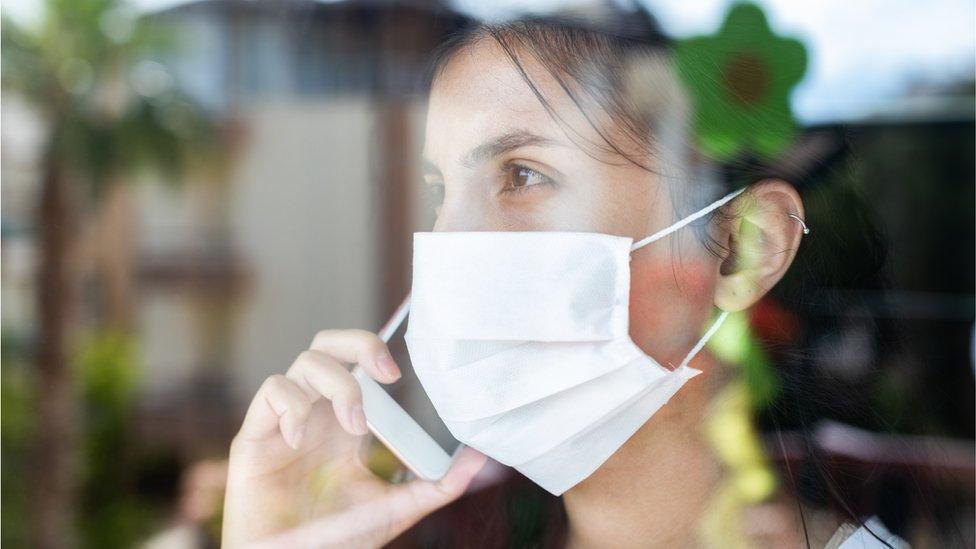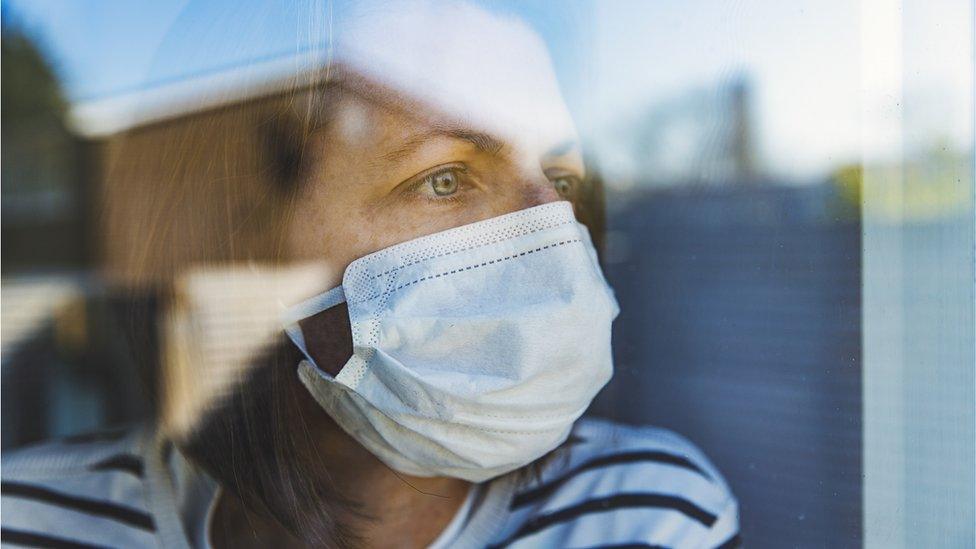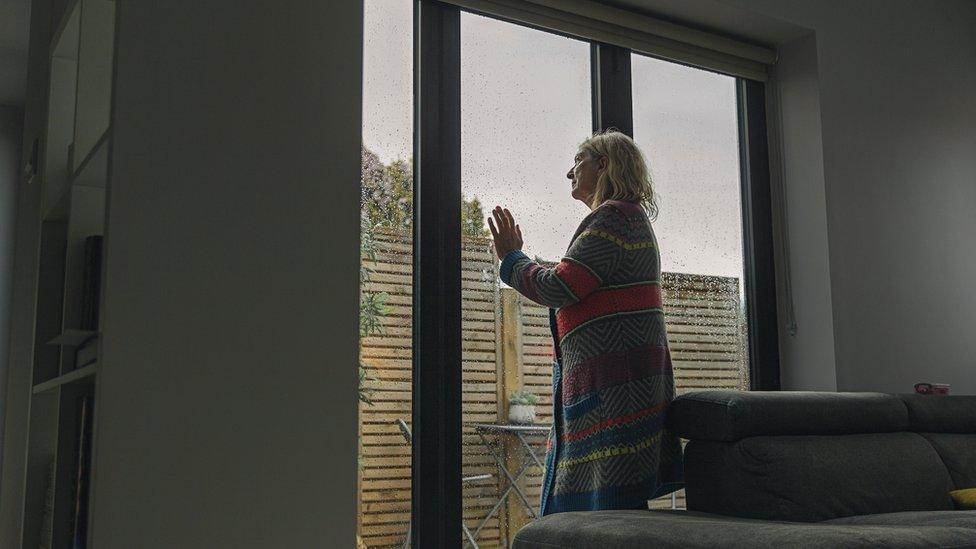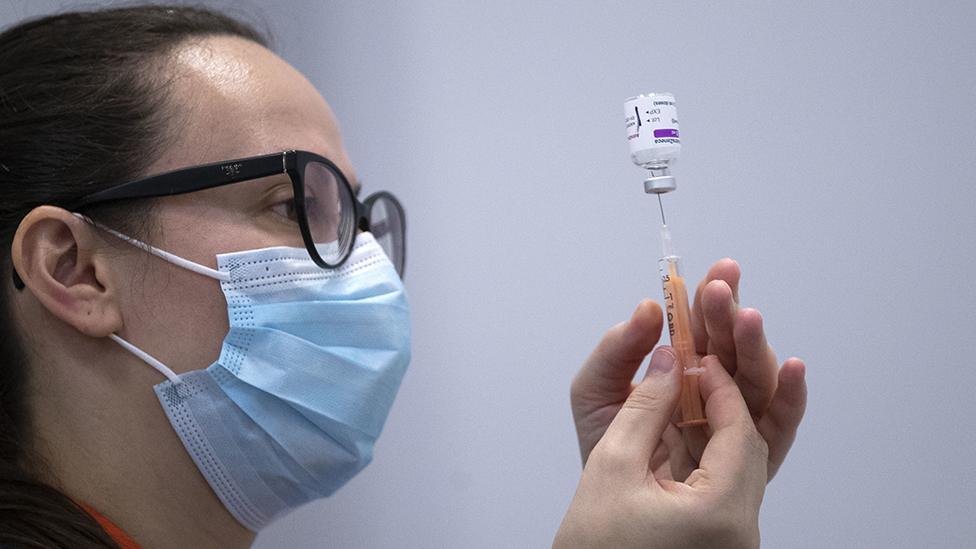Coronavirus shielding advice to end on 1 April - Hancock
- Published
- comments

More than 3.7 million vulnerable people in England will no longer have to shield from the coronavirus from 1 April.
It comes as the numbers of Covid-19 cases and hospital admissions have declined for the past couple of weeks.
Letters will be sent out to this group in the next two weeks.
In them, people will still be advised to keep social contacts at low levels, work from home where possible and stay at a distance from other people.
Since 5 January, they have been asked to stay at home as much as possible to reduce their risk of being exposed to the virus.
But at a Downing Street press conference, Health Secretary Matt Hancock confirmed shielding guidance, external, which had been extended to 31 March for all those who are clinically extremely vulnerable, would end on 1 April.
England's deputy chief medical officer Dr Jenny Harries recommended the change based on the latest scientific evidence and advice.
Shielding guidance has applied to people thought to be at very high risk of serious illness from coronavirus.
And they were all entitled to priority access to a Covid vaccination before the general population.
They include people who have had stem cell transplants or are having chemotherapy treatment for cancer and adults with chronic kidney disease.
And in February, another 1.7 million people in England were added to the list, based on the clinical judgement of their GP or hospital doctor.
The four nations of the UK can decide who should be shielding in each country.
Shielding guidance is also due to end on 1 April in Wales, where more than 130,000 people are staying at home.
Meanwhile, the NHS has warned of reductions in vaccine supplies during April, saying no extra appointments should be added to the national booking system next month.
But Mr Hancock said vaccine supply was "always lumpy" and the focus should be on vaccinating those in the top nine priority groups, who are most vulnerable.

LOOK-UP TOOL: How many cases in your area?
SOCIAL DISTANCING: How can I meet my friend safely?
OXFORD JAB: What is the Oxford-AstraZeneca vaccine?
YOUR QUESTIONS: We answer your queries
VACCINE: When will I get the jab?

Related topics
- Published16 February 2021

- Published13 March 2021

- Published17 March 2021
